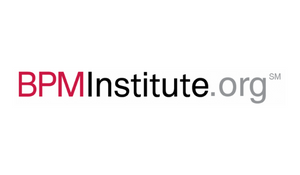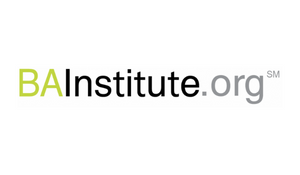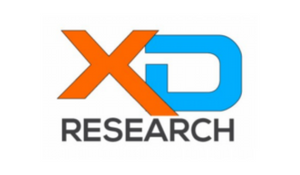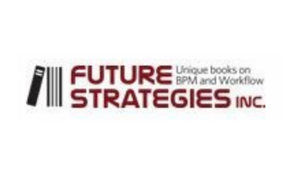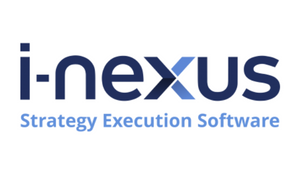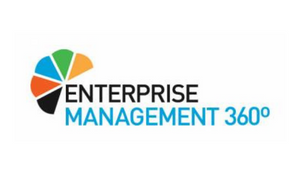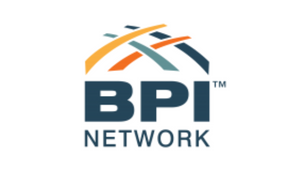
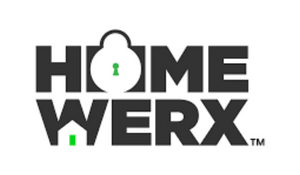
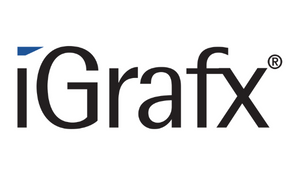
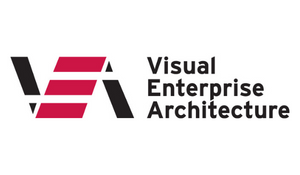
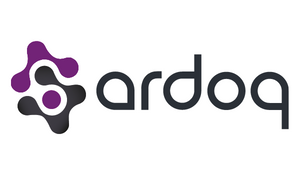
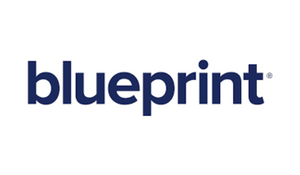
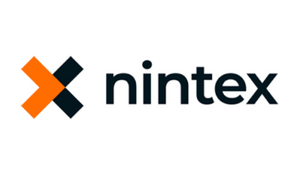
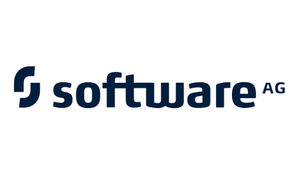
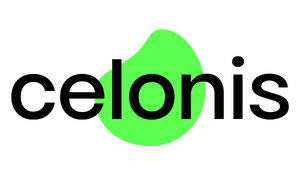
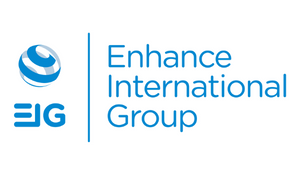
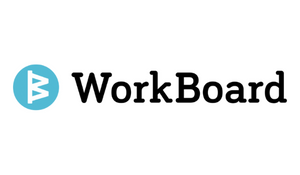
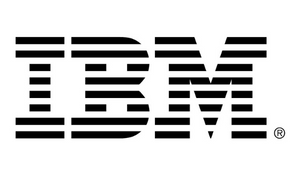
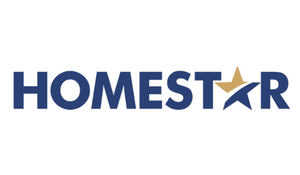
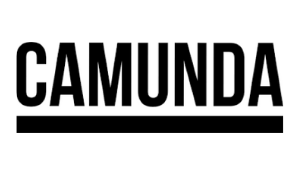
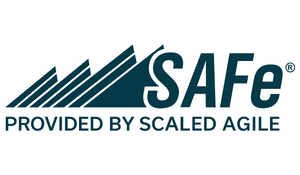
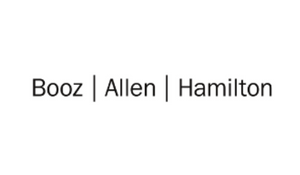
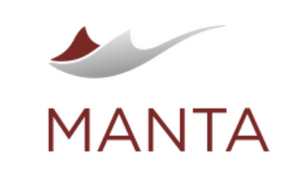
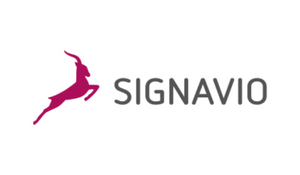
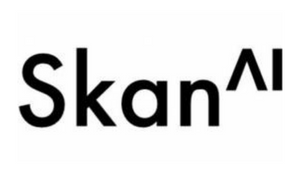

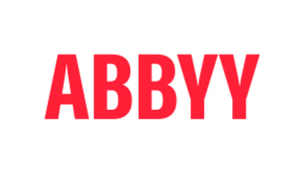

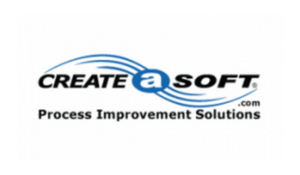

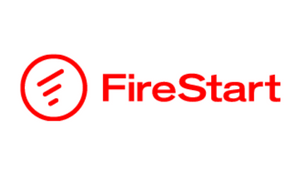

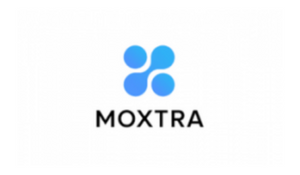
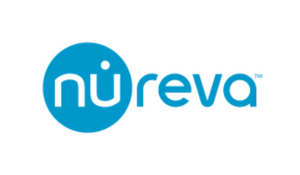
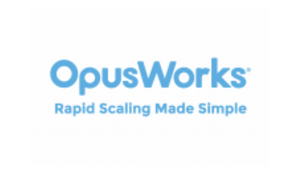
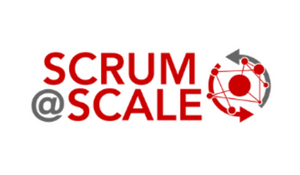
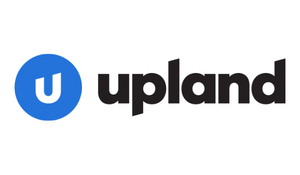
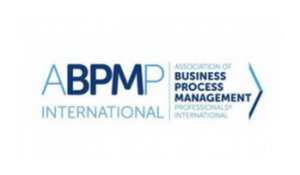
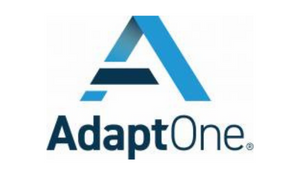
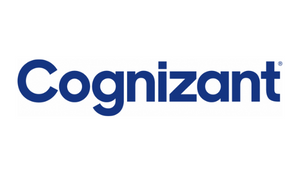
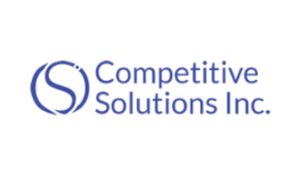
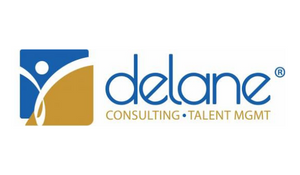

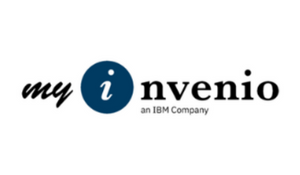
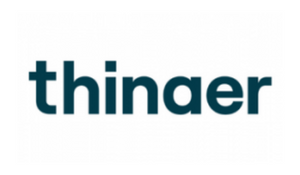
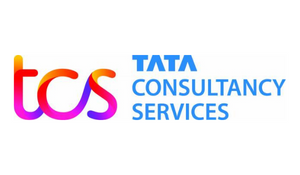
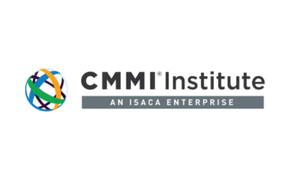
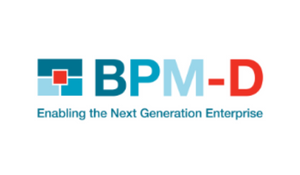
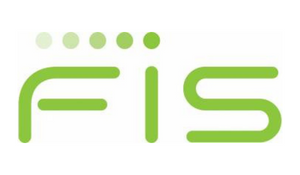
Courtesy of HumanWRKS' Brent Kedzierski below is a transcript of his speaking session on 'Workforce 2022 - Tipping Point or Inflection Point' to Build a Thriving Enterprise that took place at iBPM Live - Virtual Conference.
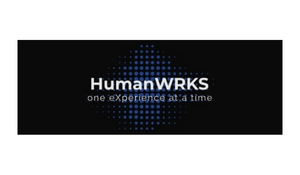

Session Information:
Workforce 2022 - Tipping Point or Inflection Point
Session Transcript:
Industrial futurist in breadth is with us. Brent is a dynamic and sought-after keynote, author, and thought leader.
He has been featured in prominent publications, including the Harvard, Harvard Business Reveal, Chief Learning Officer Magazine, workforce dot com, BBC news, and many more.
At Shell, Brent was an award-winning, Innovative Learning and Development Executive, who was the driving force that InVision Design, and operationalize many of Royal Dutch Shell's most critical global learning transformations of the 21st century.
The initiatives he led multiple leadership roles, culminating in his serving as Head of learning strategy and innovation at shell.
Earn the company, recognition as a world leading human resource management and learning organization brands. It's always a masterclass when you share your wisdom and expertise with us. Thank you so much for taking the time.
Thanks, Jose, and I appreciate that, wonderful introduction. So, thank you very, very much.
Um, minutes, 35 minutes and what I want to talk with folks about a workforce 2022. Are we at a tipping point or is it more of an inflection point?
You know, I start these things and I think about the world in terms of this times of greatest hope or the times of greatest turbulence and I think we're in an era now where we're seeing a lot of things dynamically going on.
And so when I think about tipping points, a lot of times, you know, we've got code, but it really was a catalyst over the last 4 or 5 years and we can have these negative tipping points which really we're switching from this desirable stability or to, you know, to an undesirable. So, is the ball rolling down the hill? Or as I look at it, is this great resignation, this Great Awakening, creating an inflection point to really say it's going to be positive.
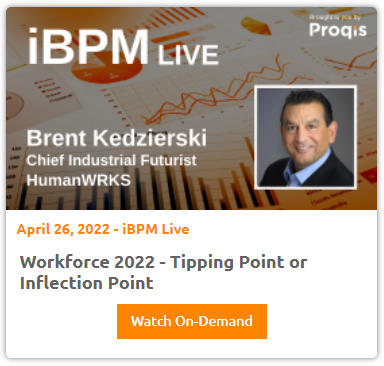 And we can change from Secretary where we're at. So this talk is really about the context of where we're at, where we've come from, and where I hope we can get going in this world of work.
And we can change from Secretary where we're at. So this talk is really about the context of where we're at, where we've come from, and where I hope we can get going in this world of work.
So anytime I do a talk, I want you to know a set of things that are be presented in this context. And I want you to feel a certain way about those things. And, you know, I've gotten so much research lately about the brain chemicals and, you know, integrating those into the workplace and designing jobs and roles that, you know, trigger these positive chemicals. These Happy Chemicals in the work that we do, is we, especially, as we especially automate and how do we create new work cycles and designs that are more positive for people? And just, again, not that bright binary. Also, when I'm done, I hope you do something.
You take some of the knowledge and some of the feelings and hopefully come out of this, and we give you a bit of time to think. So five slides, and I just want to get into the context of work, and I won't long do that.
You look at things almost like an bookends in 19 18 weekend, the Spanish influenza, and everybody's walking around wearing masks.
And then, 52 years later, we had osha.
And osha was formed, where it was really the start of automation, lot of the machining of industry.
And the thing, the return on these things, is, when we saw this thing, 908, including this, one out of every five workers nationwide, walked out and strikes, they weren't happy at work, then you had the Fair Labor Standards Act come in 19 30, 8 will be eliminated.
The title of labor, that we're still dominant. We put in the eight hour work day. And we do a lot of the reform of what work looks like and what it felt like.
But then also in 19 70, when doctor Luther King was assassinated, he was in Memphis on a mission to help striking workers, then again now we've got 2022 with this.
Covert bit.
And this awakening, so the next year is going to be 20, 74 in this bit. Why don't slide up here? It's really simple. if you look at the time. It's the same time, the years between these three dates.
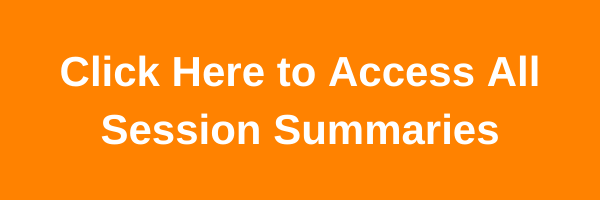 And if you would have said, Geez, you know, 19, 18 to 19 70, That seems like it was such a long time and it's really not in 19 70 to 20. So we see this about crime going fast. Then this line, I want to tell you the same thing.
And if you would have said, Geez, you know, 19, 18 to 19 70, That seems like it was such a long time and it's really not in 19 70 to 20. So we see this about crime going fast. Then this line, I want to tell you the same thing.
Because you're 68 tonight, teen, 18.
And then, as I said in 19 30, the first State Standards Act, 2070 years. But in this time, we had the social reformers for work. And this first picture was Winslow Homer. He would do sketching of people going into the industrial textile mills in New England and you can see the drudgery and the toil on their face. And you can see them going in with their buckets for lunch. And you can see the children going in in the men and women, in the older people.
Then, the next picture and Lewis Hine was Watch our next photo journalist, he built a lot of documentation of the steel industry. He actually did the first Sochi economical Study of industry in the Pittsburgh, Allegheny Steel Mills. And they studied the living conditions of the workers. They study and work conditions, and that led to a lot of reform.
This picture, Lewis Hine took this, and these were coal, mine, Boys, called breaker Boards, They would break, they would sit on the in the coal mines and breaks down from coal, and in this day, two of these breaker boys, when Lewis Hine took that picture, they died that day.
The next picture in the same year was the garment district in New York City where the famous Triangle fire occurred now, hopefully you've heard about this, it gets celebrated.
Remember, ranks every year because 146 immigrant women were killed in this fire. They run in ninth and 10th floor because that was cheaper to put them there than on the bottom folders. The building was pretty much all word.
The women worked with sewing machines That had been cans of oil, scraps of material and clothing material. The doors were locked because the supervisor didn't want them to go out on smoke breaks. The fire escapes didn't really work.
And a fire started and unfortunately 146 many of these women jumped out of the building.
There were no, nothing to catch them, really.
They went down elevators, and died, and it was a terrific disaster, but it did result in over 30 forms of safety legislation that were defined for working conditions. And then a few years later, we had the great train wreck.
And, again, it was most devastating passenger car incidents in industrial history, where over 100 people died. And these two trains collided.
And they collided, because the porpoise danger is bad, signaling, that training. Everything related to a lot of the safety precautions. And it also resulted in great reform.
You might not know it, but passenger cars are made of steel today. Because of that incident.
So, you can see in that short time, period of seven years, 249 souls just in this.
These three incidents paid the ultimate sacrifice and it resulted in a lot of the change in legislation that we have. But, let's just the context, Someone to give you that there was a time when humans were really tremendous industrial cattle. And many of them paid the ultimate price.
Much of the reform we have, OK.
Second thing is when automation started culturally, at least in the United States, we had an error where the human being was a very, very poor substitute for automation.
So, if you look at like Paul Bunyan, This is when chain saws and power tools, we're starting to change the lumber industry. The gentlemen tending the steel rod was Mager until Mager up in ... actually means donkey. But he was, you know, the table, greatest worker in the steel industry. And then you can see John Henry there, who thought steam engine.
So we built this entire society of culture around the human fighting the automation and what would become of them so it's ingrained in our culture. So a lot of times, we wonder why people fear, automation. Well, it's been bred into us for hundreds of years.
Now, the same thing here with a lot of our literature. I love the story of the little map for you, if, you know, the story was about a little old man who was freezing one evening. And instead of going home because she didn't sell matches. And facing their father, She decided to burn the magic, she had. And each time she burnt match, she had a vision of a better life that she had. And, ultimately, in the end of the day, she died, But this was the, the, even in the literature, we're writing stories around industrialization and, you know, how ... forwarding.
People's, emotions, humanity, and imagination.
So, again, when we talk about digital transformation, talk about where we're at from a culture and climate, we've had decades and generations of these kinds of stories where a lot of our fear comes in.
But now, we fast forward, and we're in the era of humans, collaborating with automation.
And this is the era that we say, now, we can marry.
Humans speared, collaborative powers of intellect of creativity, those things that automation can't do, then we can really marry up. So we can have these biomechanical workers and augmented workers and the virtual reality type workers and healthy workers with the sensors.
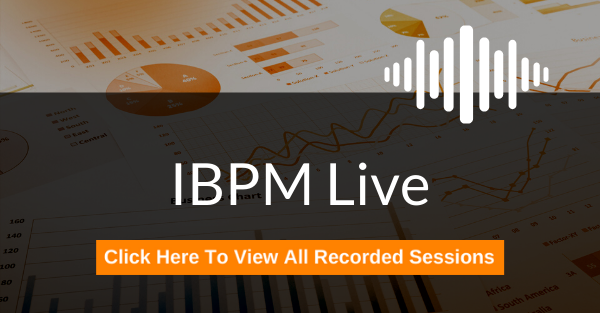 And the devices that help them monitor themselves are the social worker, meaning, the person, it's digitally connected or collaborative.
And the devices that help them monitor themselves are the social worker, meaning, the person, it's digitally connected or collaborative.
So these are the types of workers that we're finding And the skills that we need to appeal. And I talk a lot about power skills. And when I mean power skill, I don't mean supercharge soft skill.
I mean, our skills and skills, that Schumann's, ooh, but automation can't, and those are the skills that we've got to start building in our, our community colleges and our universities. These are the ones that are going to sell the next generation of workers. These are the ones that are going to help workers change the work week. change how work is organized and structured, and what humans are valued for. We don't want humans searching for data.
We don't want human boiling and trying to assess the quality of data.
We want them painting, collaborating, and creating.
And that's the error term. Industry five, where we go from this mass product, needs to be addressed by automation, and we want humans to do the mass personalization, products, and services in the delivery channels. So, that's kind of the back of where we came from, where I hope that we start to go. And now, we've talked about tipping point inflection point human condition at work.
And so, again, I've given you a lot of this, these industries, and I hope all of you know around the street for Cornell. And you also, you know, you'll say, well, cheese, Industry five when it came up so fast? It did. Because this idea of the people as factory, smart production, the autonomous plans, what they failed to think about in that German summit in 2011, when we coined industry four.
Is the ability of cyber physical connectivity just not to connect things in the plant. So sensors, drones, tanks, equipment, machinery, has the human fit into that. And this is also idea if we automated level one was really, let's automate the repetitive things that precision things that humans aren't that great at. Let's automate the things that now maybe or unsafe for humans to do. We don't want them climbing on tall towers. And we don't want them in dangerous confined spaces.
So that's where automation is.
Now automations got to go to marry that human to say, we're going to personalize because that's what everyone wants in their supply chains to products and their services. And this is the human touch to industry.
So, yes, smart production will make production, cheap.
It'll equalize it across the globe.
So you won't have these low-cost drone somewhat anymore because you'll be equalizing industry performance through automation where will increase the human focuses and mass personalization.
I talked earlier about the station transformation, and, again, look at the research, and you'll find that research learn from 70 to 80 plus that almost 90 of digital transformations fail. And they fail primarily because of human resistance or human skills, OK?
Because we're designing the solutions, and we're not factoring in the human condition in digital transformations, we're still leaning on digital and automation cost, and as production, and we need to balance it to see the value for humans, because, otherwise, they'll still worked.
Um, the big thing now, as we, as we look around the universe that we live in, is these trends.
And the big trend is Crossroads that will read as what should work look like and who decides.
OK, so we look at the statistics I put here, and I'm sure you're familiar with all of these things about, you know, the engagement rate or lack of it, the quit rate, and manufacturing, in this whole idea that the medical, no, work related stress is now the fifth leading cause of death, at least in the United States. And it leads to these unhealthy behaviors and go back to those brain chemicals I talked about.
You know, we're feeding people negative chemicals, you know. We need to get them the positive.
Because what's happening is, I believe, and I have this belief that a good work environment creates a healthy, mentally, happy worker. That worker goes home and his pleasant to their family, their spouse, their skilled draining.
Are able to do things. They are happier, happy families, create happy communities, and happy communities help to make a positive society. And when people are unhappy, they drug abuse, alcohol abuse, they overby, think, it's transparently don't want to exercise.
And they do all these things were, it's just drudgery. And we need. And again, we're not in this old pictures of those old days again. You know, it's been, since the Fair Labor Standards Act. I think it's been 70 plus, or 80 some years since that.
But these are the things that we've gotta jump, OK, And again, people are pushing back because these human capital options are shifting.
I invasion an idea that I have is that, You won't work for one company in the future.
Like, you know, we sell ourselves, oftentimes, one company that gets to own us, and, you know, that's, you know, when they bought us, well, I look at it in terms of, you might work for three companies. You might spend two days a week working for one company a day, working for, another company, two days or however you want to work.
.png?width=742&name=Screenshot%20(4).png) Again, these are the things that are or societies.
Again, these are the things that are or societies.
It's shifting, because people want to give and they're doing it. You know, we now have a lot of manufacturing industries.
You know, the turnover rate, or lack of attendance rates, recycling of employees, the art.
In the role long enough to become proficient or autonomous. So what do people want?
I did this slide of about a year ago. You know, people want meaningful work.
They want human centric job support.
And what I mean by that is they want support that is easy to use.
It has the experience conditions, but it's not tailored things to do and actually help them in signed, help them. so, you know, and they also want to visually fluent.
You know, I do a lot of consulting with big corporations on their learning environment, and I try to express to them being digitally. Fluent and helping your employees to be digitally through it makes them more employable and that's what they want.
And so you're just not in testing and digitizing your content for people. You're giving them a better experience, and you're giving them better skills, so they can go and say, I've worked with digital content. I know how to do more analytical or computational thinking.
And I also, much smarter social connectivity, you know, they want the net promoter scores. They want to be able to get credit for what they share, because we're now, moving from this era of knowledge, is power. Something I hold onto, something I don't give up to something that helps me build my personal brand, it work.
So, who, who knocks on, brainstorm where, they are not going to brainstorm, because he shares the shares in a nice way. And he's got great content, and he's known for that. So, you know, what do you want to be known for? And again, what people want is this film and inflow, they want to know that their work is meaningful. It's valued, purposeful, and they want flow.
You know, if I stare out the window, my office, or cubicle, and the manager walked by, the old reaction, is what do you do in daydream?
No, No. But if they saw me hustling and struggling to find data or compile some data that I shouldn't have to spend my time, you're finding, that's work. But they look to, imagine to, create, to think and to have that flow.
Again, most people aren't productive because they don't have flow. They get interrupted. We've got too many devices. Too much information coming to us.
And we need to structure jobs so that people actually get time to think, get time, to create good time to be socially connect.
So these are some of the brands that I see.
And again, when you look at the experience factor, you know, these bubbles are what people want. You know, they want to say, I've got long and there's some relatedness to them at work and how they fit in. They want to be valued. They want to be employable and they want to stay that. I'm just not doing mundane routine things to get a paycheck.
I'm building my personal brand. I'm making myself employable. I'm making myself more transferable to other avenues of employment or Oregon Skillsets And because again, drop 10 years will go up, they're gonna go up more and more. They want inspired and they wanted to be supported. So the whole in all goes to this emotional signatures that companies create. You know, they want that clear stainless security. They want to get out of this term style of re-organization.
So I've talked to one of my friends and the oil industry has gone through five re-organizations in the last six years.
And so these are some of the things we've got to put a bit of a cost. And most of all they want to say, I'm OK.
I've got mental health and I've got well-being. and that's what steady on my feet. But this is the employee experience movement. We really thank God. I think about it when we automate, when we digitize, when we transform.
Um, last thing I'll tell you with my little globe with the eyeballs is transition.
And I won't go too long.
But, you know, some people have the point is Frederick Douglass said if there was no struggled with the progress and I started the bit.
Hello.
Great, always comes in the times of greatest turbulence. So you know, this is, this is what we're facing today.
And we want our automation, Feng Shui, to human being. It gets the brain chemicals go. It, makes them employable. It elevates their skill sets that are uniquely human. That's what we want to do.
Think transformation my entire career. I never escaped brent's arc of organizational drama.
There was always a beginning metal and, and, and metals are messy, no matter what you do in life, The middle of something, whether you're painting a room, or whether you're, you know, changing oil in your car, or whatever you might be doing, and it goes through these archetypes, you know, everybody has the archetype. You know, some people are heroes summer antagonists.
But you've got this big where the hero wants to digitally transform something in a company. Then you've got the antagonists, and they come in many forms. They could be individuals with bias. They could be processes. They could be systems to block the just culture, whatever those things might be. They will attack the hero or heroes, then you have this rising action as you try to digitize or transform or automate in a human centric way.
That, you know, people will find out because when you do things, you figure things out and figure out there bandwidth issues, or there's installation problems, or there's receptivity problems or Cloud pricing. I didn't know we had to pay for cloud usage and on a basis. And then, you'll get into all the drama and the tension of saying, We're in trouble that we make a mistake that this guy or a person woman have the capability to actually, that we entrusted them to do.
Then, you sort things out.
And you resolve, and you recognize, you start the next cycle, so you've created this point B, the new status quo.
And then so when you create a new status, code is better than the old, next thing to do, and some time is to revisit that crumbling. Supercharge it again. So, all of these things create conflict.
 Entwine information will take care of, or it may be on a mass scale, but people will take care of the personalization, humanity, the collaboration, and creativity, the innovation as things that they are best suited do, and we need pair that new generation of workers to do that.
Entwine information will take care of, or it may be on a mass scale, but people will take care of the personalization, humanity, the collaboration, and creativity, the innovation as things that they are best suited do, and we need pair that new generation of workers to do that.
What I would say, it just fit in and summarize, we want a sustainable workforce, and, you know, What am I see?
A sustainable, What work looks like?
and who decides, must shift?
It's gotta go from this picture, you know, patriarchical position, that the company decides everything to, there's co-operation, collaboration, emotional signatures, employability is, it's something that makes people want to stay and retain, um, employers need to embrace the economics of emotion.
I believe that companies emotional signature is going to be more valuable than their external brand, um, in the coming years, digital transformation has to go human.
I've seen so much digital transformation fail because it hasn't been human.
Um, in tow hyper focused on empathetic leadership.
It's a new style of leadership.
We don't have a lot of leaders out there that are very good at it, because they don't know the rules, of course, yet, because I'm not. a lot of people literally done it. And it's always been the exception that I had a great leader. And most of the times, if you look back and and you talk about the best leader, you've ever had the room probably pretty empty.
You probably trusted them because, you know, they had great credibility. They reliable.
And they had a level of intimacy with you of care and candor, and they didn't have a super high self interest. And I think if you find like in most of your relationships, anything you don't trust probably is weak in one of those variables at that trust.
So, anyways, I want to stop there, and I'm going to turn it back to say, and, again, I'll end with what I started.
Hopefully, there's some nuggets in here that sparked your interest. Maybe get your brain chemical thinking a little bit, and feeling a certain way to your personal context, to your personal situation, what you can do for yourself, or the others around you? And then, you know, what is the point of that can out of anything?
Because we always hope that, if we invest our time and attention, we can do something of value for us or others with that. So, that's all for me on on these slides.
That's fantastic brand, it's always tremendously insightful to see your perspective on the human side of, of, of change and transformation, and the, and the and the evolution that we're seeing in the industry. If phi, if I may ask you to stop showing your presentation screen, and keep your camera on, and I'll bring my camera on as well, asking the audience to continue to submit your questions, here.
And, And Brent, one of the first questions have to do with moving in this direction, and implementing some of the concepts that you're talking about, What, what can you do?
Let's say, in your organization? Should they just start moving this direction? What are some of the things and actions that you can take?
Just start implementing some of this concepts. What does that look like?
So if you look at September, breaks, things that go on, like, I'll use myself as a personal example, if I work for other companies.
And what I've found is my most productive day in the day that I'm happy yes, is, I don't want to struggle, but but it's on a Saturday because I watch a football game. I'll sit now to be creative, and no one interrupts me. I'm in my zone, my flow, and I want more Saturdays in my meetings.
You know, so it's one of the things that you do is figure out in the personas of your work.
What do people really want? What do they really value?
And I'm seeing organizations with significant problems that are simple, And this is the thing that we've gotta do. You know, we talked earlier, say, about, just a simple digitization of content for people, that makes it ready. Relevant, personalized, and adaptive to them.
Very, very simple to digitize content, but companies don't do it, And so it's a lot of these kinda things, because they're still apprehends. I mean, I find that companies are still being a bit fearful in the innovation cycle.
And the follow up to that, Brent.
What, how can you influence leaders on this direction?
Because, you know, you, you work in a pretty large organization.
You, you, you advise a whole lot of different organizations were very large. And organizations, large organizations, especially, they have structures, and they have people who got in certain positions over, time, and, and how do you start influencing those people to have this view?
Because my gut feel is that most of the, certainly in the larger organizations that, that the very few leaders, in those larger organizations, are, are kind of employing an empathetic, starting, empathetic style of leadership. Correct me if I'm wrong, but what is your perspective on that?
And then the and how can we influence leadership to say that this is a worthwhile pursuit?
So the first question is, how do you create influence, right? And so I love Robert cialdini's book on influencing these seven. You know, six factors of Influence. You know, I love the concept of being likable likeability. I loved the concept of business acumen where you can you know what makes money for the business and what loses money for the business and how the functions interconnect and go.
I always worked on presenting a full proof presentation, and what I meant by that, so I can always tell what my business leaders would asked me. I'd always have the questions answered at a time, and I would do my research.
And I would always go to like the most, The most prestigious thought leaders in areas, and I would learn from them, and I would use that data. And honestly, a lot of times, I had one manager, tell me, Brian, you know, you had that, you had the presentation one before you deliver it. And that's kinda what you want. You want to be able to anticipate what, you know, because everybody's gonna do the same thing. We tried that. before, that won't work here, we're a unique, we've got a lot of other priorities going on. And, if you know those reads restriction, that common, I mean, I very seldom go to me. Well, how is this going to affect people and change? And how are we going to the standard questions?
And, if you've done it long enough, you know what those standard questions will be or should be.
And, you know, and if you have the data behind you to back that up, you know, and, again, you always start small with them.
 Prove your concept, pilot your concept, scale your concept, replicate. And so, you've got that.
Prove your concept, pilot your concept, scale your concept, replicate. And so, you've got that.
You gotta have your belief, you know. And honestly, it's also hard work. I mean, I did it for 22 plus years in Shell and before that.
And it's hard work, you're not always, you know, half the people hate seeing a calm and half the people, don't care If you come, and you know the other half, one, Fifth, you know, they'll say, Hey, that's great.
So, it's, it's, you know, you aren't going to have that, because we deal with it.
But this is why we need these human skills because we need, would it be smart enough to have short term strategic thinking skills extend extended thinking skills, and have this whole concept that they know what humanity and what people and relationships and all that do?
That's what we were missing before.
We were always slapping ideas against the wall and they were very sterile, very gray E They aren't really integrating humans in the right way.
That's great. Insights branch. Suzanne.
Quarter is asking, maybe, for some perspective here, on the any experience that you may have that people, organizations, who, which are implementing digital transformation with this, with a human component. Do you have an example of any organization that's currently implementing digital transformation of the human component? There, are being successful with that?
Or, at all at the time, it's more of a concept.
Yeah, so, there's lots of good examples. I'm happy to always take it offline. But anybody that wants to talk to me after, we were doing a lot of things that show like iPads, and digital content, and things like that. And the first rule was we failed.
Because we were always giving problems to consultants. External consultants that go runaway give us a solution. And then a year later we blame some iPad on an operator's lab and they'd say, What is this? That's not a problem anymore.
Or, you know, whatever it might be, or we didn't look at the human factors. You know, we give the operator an iPad, but they didn't want to carry that until we gave them a strap. So it made it easier to carry because they had other things in her hands, too.
Or, we gave them an iPad, but so many confusing icons, that they didn't know how to integrate well and do that. So, these are the things you have to think about, you have to think about physically, what does that digital transformation mean to an operator, intellectually, what does it mean socially organ?
So, for example, we did, we digitize shift handovers in the past, or a big piece of paper that, you know, in operator, supervisor, at 20 sheets of paper, and it kinda summarize the title, you know, and everybody title, and nobody was really, you know, listening it too much content.
They digitize those. Now, people can see it clearly of what was of interest to them.
And the bigger thing is, one process unit could see the reports of another process unit that they never saw or heard before, and somewhat relevant to their process unit, So we had extended thinking. And so these are the kinds of human factors, intellect, social things, that we need to think about. And companies just aren't right now. And I guarantee you, if you start, to look at how it's making the human feel more relevant, more purposeful, more useful, more valuable, humans will embrace digital.
If it works, to help them, if it works, to basically give more productivity to the plant, What's in it for them? Or, you know, I mean, it's not, you know, so it tells kind of things you gotta think about.
Brent, another theme that emerged as you're discussing this topics is the, is trust.
There is, uh, perceived lack of trust in, with organizations, you know. And the senior leaders will say things like, hey, you know, our people are our most important asset, and then, when the next, and I may comes, you know, that those same people are the first wants to go, and these assets are still in the field. So, there's that contradiction there between what people say, what they actually do. They'll say that, oh, you know, again, you know, humans are most important in our business, but when you look at leadership development or talent development budgets versus technology, development, budgets, it's not even close.
I mean, you're gonna spend, you know, is that, so, boy, it's It's hard to develop trust when, what you say and what you do is not aligned. Right. I mean, this is a big barrier here. I'm just curious, you have a lot of cross industry experience here. I'm curious about your perspectives on that.
To me, it's an epidemic and here's what's happening.
We're putting a lot of leaders in roles that are new to leadership because they're new to leadership there, secure.
Because they're insecure, they have low levels of trust and they weren't high levels of control. So what that means is they want to see everything they want to micromanage everything, and that degrades the worker spirit: the relevance, the importance, the purposeful as their autonomy there, and all those things. And the other thing is consulting and big organizations. And being in one leaders.
At any level, they faced the same kind of problems and people that lower level, just in a different scale. They have their insecurities, their concerns, their fears, and I think many organizations make their leaders fearful, and this idea of psychological safety, safety, to challenge, you know, safety, to to ask questions. We don't have it.
And it's because organizations aren't creating these environments. I know, for a fact, some organizations I work with, people would never challenged the lead data about the webcast wherever they would never challenged the leader. I've tried to estimate that this leader ever get challenge.
I mean, they've had 20 global webcast, No one's ever asked a hard question.
Why?
No. But the hard questions come in the water cold winters in the hallways, so people are fearful And they're fearful because the instability of the economy, they're fearful because, you know, the risk of unemployment.
So it needs to be fixed and organizations don't get it because they'd rather pay the price and problem is they can't see like the human problems, because people won't say anything that kind of hide it verses the problems. When it comes to technology problems, they can see, you know, this, or that. So it's just that we've got to evolve, and we're not there yet, and cut in most companies are.
I'll go back to this.
And this is one of my big soapboxes.
The War for Talent came out like in 19 97 and the book From The Forget, McKenzie guy that wrote it. And The War for Talent, for 20 plus years now it hasn't worked. because it was about getting people to see the organization is an attractive place to work and hire them.
There's nothing once they got in to make the experience good, or keep them employable or want them to come in.
What does that tell you what our organizations thinking we're gonna shine a bar Penny. You get the Pied Piper to make us look really pretty. That's part authentic.
We're just trying to compete for the best talent, get the best talent, and then got the best panel then but they didn't do anything.
They made the talent work, their conditions of what they created a re-organization, you know, ethos.
Indeed, indeed. And the brands that Rob Jago or J go, I'm not sure how you pronounce your last name, Rob apologize for that. He's he's asking a question related to that. You know, how the work of leaders on innovation, when they don't have the skill and experience with innovation. That's just one of the many related items you discuss here.
.png?width=742&name=Screenshot%20(4).png) The lot of leaders are in positions right now, where really they're not equipped for the roles that they have and which and really the, the, the significant changes that have happened.
The lot of leaders are in positions right now, where really they're not equipped for the roles that they have and which and really the, the, the significant changes that have happened.
right, I mean, some of these leaders are groomed for like 10, 20 years to be in a certain role, but should do things that, you know, we're done 20 years ago. And then, all of a sudden, that that that system is not the economy, that the business model is not the same.
And, and so, they are putting dispositions now and and they've been groomed for this positions. But, they may not be ready, because the game has shifted. And innovation is one of them, I mean, you Listen, you're not promoted for a long time for just being the most innovative burst into the company.
You are promoted for making sure that you manage the risks and utility appropriate, thanks, and so, innovation was not something that was that accentuated. And, and in succession planning, that now, it has become one of the most important things. And now you have the leader that has been developed for a long period of time without that attribute.
Boy, it's a tough situation.
I mean, you discuss, you know, we have to try to navigate that. We now need to have courage. We need to have discipline. We need to help leaders and navigate this because, as you said, they have the same insecurities that most of everybody else has.
It's the decades of work, and we haven't changed our institutionalized views of work. I take a look at leadership, for example.
I mean, leaders, should we actually be certified training professional leaders, right?
To make them say, Well, you're great technical conference, relevant tripod, some additional accountability because what I see is, they're lousy at people development. It's not a priority for them. They're lousy coaching their allowance, You have a lot of things. And so I'm saying why these things come in to be outsourced to say, Look, let's take development, the people off the leader, let's take this off the leader. You know, because we put all these other administrative things on them to do, they're doing their own travel, and now they're doing this now. They're doing that now, and so, the system will collapse.
And I think we need to be honest to say, know, the way work is going to be designed in the future, and people have seen the covert people say, I didn't need a leader. I was perfectly productive and my work did not dip in quality and I wasn't micromanage so I was working from home left alone to be a time limits do and the liver and I did a good job. And so, you know, we've got to determine what's the new value of leaders and organizations. And, I don't think we can put, 19 18 mental models if somebody working in a steel mill on highly qualified, you know, connected worker of today.
It's always a pleasure to learn, share, debate, discuss with you about this topics that are relevant topics. I know you're out there in the industry, working with a lot of leaders in implementing this mental models, and mindsets, and the changes. So we appreciate you for that, and we very much appreciate you, for sharing this, wisdom, with all of us today.
Thank you, Jose. It's always a pleasure. Anytime I get a chance to do something with you, I'm on board.
OK, thank you, my friend.
Ladies and gentlemen, Brent.
Currency SP, again, Chief Learning Officer, Industrial Futurist, And just overall great leader sharing his wisdom and expertise of all of us. We're going to be wrapping up this. We're going to wrap up the session now. And we'll be back at the top of the hour with another great cross industry leader of excellence, innovation and transformation. talking about Mark McGregor who's gonna be coming directly to us from the UK. And Mark is going to be talking about the criticality and re emergency off intelligent BPM's. But not, as you know it, Mark always brings fresh perspectives on what's actually going on in the industry. What works and what doesn't work.

 Brent Kedzierski,
Brent Kedzierski,
Chief Industrial Futurist,
HumanWRKS.
As Head of Learning Strategy and Innovation at Shell, Brent drove Shell’s aspiration to be a world-leading learning organization and was the owner of Shell's learning strategy, workplace learning capabilities and thought leadership. Over his career he led many of Shell’s most critical global transformation initiatives of the 21st century. Initiatives that have collectively positioned Shell as a recognized leader in human resource management. Brent’s passion and expertise are focused on tackling complex organizational capability challenges and opportunities as they relate to humans at work. Prior to Shell Brent led a wide variety of high-profile workforce capability projects in high risk industries such as aviation, criminal justice, nuclear and healthcare.

View our schedule of industry leading free to attend virtual conferences. Each a premier gathering of industry thought leaders and experts sharing key solutions to current challenges.
View Schedule of EventsWelcome to BTOES Insights, the content portal for Business Transformation & Operational Excellence opinions, reports & news.
-------------------------------------------------------
Search for anything
Insights from the most progressive thought leaders delivered to your inbox.
Insights from the world's foremost thought leaders delivered to your inbox.
Being a hero is all about creating value for others. Please invite up to 5 people in your network to attend this premier virtual conference, and they will receive an invitation to attend.
If it’s easier for you, please enter your email address below, and click the button, and we will send you the invitation email that you can forward to relevant people in your network.
View our schedule of industry leading free to attend virtual conferences. Each a premier gathering of industry thought leaders and experts sharing key solutions to current challenges.
View Schedule of EventsWatch On-Demand Recording - Access all sessions from progressive thought leaders free of charge from our industry leading virtual conferences.
Watch On-Demand Recordings For FreeDelivered by the industry's most progressive thought leaders from the world's top brands. Start learning today!
View All Courses NowThe premier Business Transformation & Operational Excellence Conference. Watch sessions on-demand for free. Use code: BFH1120
Watch On-DemandInsights from the most progressive thought leaders delivered to your inbox.
Insights from the world's foremost thought leaders delivered to your inbox.
Being a hero is all about creating value for others. Please invite up to 5 people in your network to also access our newsletter. They will receive an invitation and an option to subscribe.
If it’s easier for you, please enter your email address below, and click the button, and we will send you the invitation email that you can forward to relevant people in your network.
Courtesy of Nintex Pty's Paul Hsu, below is a transcript of his speaking session on 'Improve employee productivity during and post-COVID by ...
Read this article about HP, Best Achievement in Operational Excellence to deliver Digital Transformation, selected by the independent judging panel, ...
Read this article about BMO Financial Group, one of our finalists, in the category Best Achievement in Operational Excellence to deliver Digital ...
Read this article about Cisco, one of our finalists, in the category Best Achievement of Operational Excellence in Internet, Education, Media & ...


